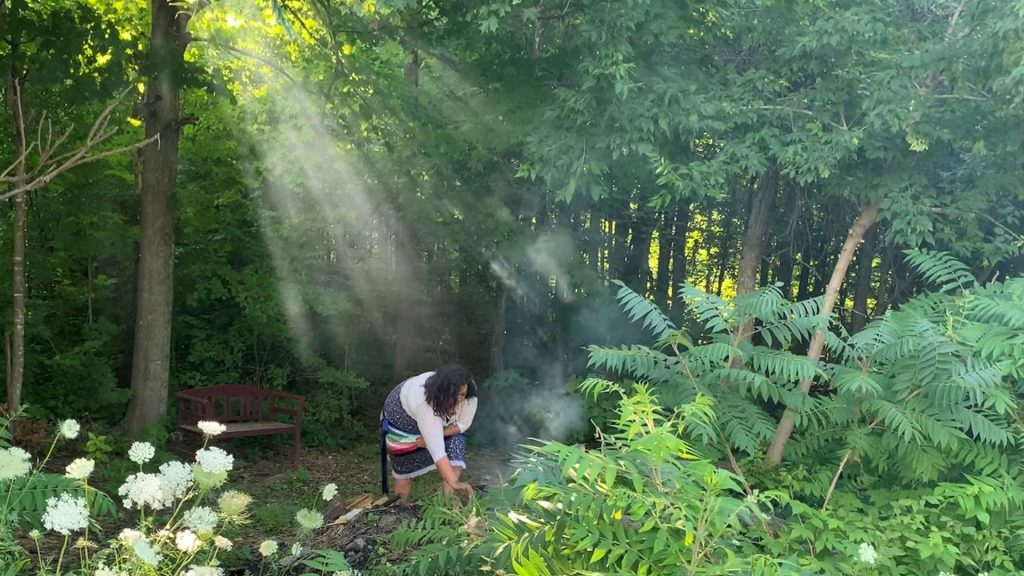
Cheynna Gardner lit a sacred fire in her home community of Eagle Lake First Nation in 2021 to call out sexual abuse. She's calling for others to speak out across Treaty 3. APTN Photo: Kenneth Jackson
The following story contains disturbing details. If you’re in need of support, the following helplines are available 24 hours a day, 7 days a week: Hope for Wellness 1-855-242-3310. Kids Help Phone 1-800-668-6868 or text CONNECT to 686868.
An APTN investigation has identified dozens of sexual abuse victims across First Nations in Treaty 3 territory in what survivors describe as a silent epidemic that has gone unaddressed for generations.
In fact, APTN couldn’t find a single report specifically aimed at addressing sexual abuse on-reserve at the Grand Council of Treaty 3 in northwestern Ontario.
We asked Grand Chief Francis Kavanaugh for comment, but he never responded to our multiple calls and emails.
While Kavanaugh wouldn’t talk, Chief Jeffery Copenace did.
“If the chiefs aren’t going to try to fight for our women and the abused, then who is?” said Copenace, of the Ojibways of Onigaming First Nation.
Copenace said he’s a victim of sexual abuse, just like many from his community.
“I’m not going to stop talking about it,” he said.
The only mention of sexual abuse on-reserve in the territory is data found in the annual reports of the Treaty Three Police Service that APTN examined for this story.
Over the last five years, there’s been 485 sexual assaults reported in 23 communities, which are largely investigated by frontline officers, that had a combined on-reserve population of 8,685 as of Dec. 2022, according to the federal government.
Last year, there were 93 reports of sexual assault.
That’s more than 1,000 assaults per 100,000 people.
The national average is 90 per 100,000.
A crime rate is determined by dividing the number of crimes by the total population and multiplying that by 100,000; a standard used by Statistics Canada.
As high as that number is, it’s not telling the full picture, APTN found.
Survivors of abuse said most victims in Treaty 3 don’t report their assaults, which isn’t uncommon, as only six per cent of victims report sex abuse in Canada, according to Statistics Canada.
All signs point to an epidemic of sexual abuse in Treaty 3 and APTN has traced some sexual abuse through generations of the same families.
These are small communities with just a few hundred people and the abuse doesn’t always end after the assault.
Victims can be harassed or belittled by the abusers’ families, who may also control the band office, so basic needs of the victim can be ignored.
Rainy River First Nations, about 30 km west of Fort Frances, Ont., has also threatened to banish people from the community who speak out about abuses happening over the last several years.
Even worse, victims have sometimes been kept quiet by their own families in the community going back generations.
“My uncle Ronald called me a whore. My mother said I wasn’t innocent anymore. It was my fault,” said Valerie Fisher, 66, who told APTN she was raped at the age 12 by an older man from her community of Rainy River.
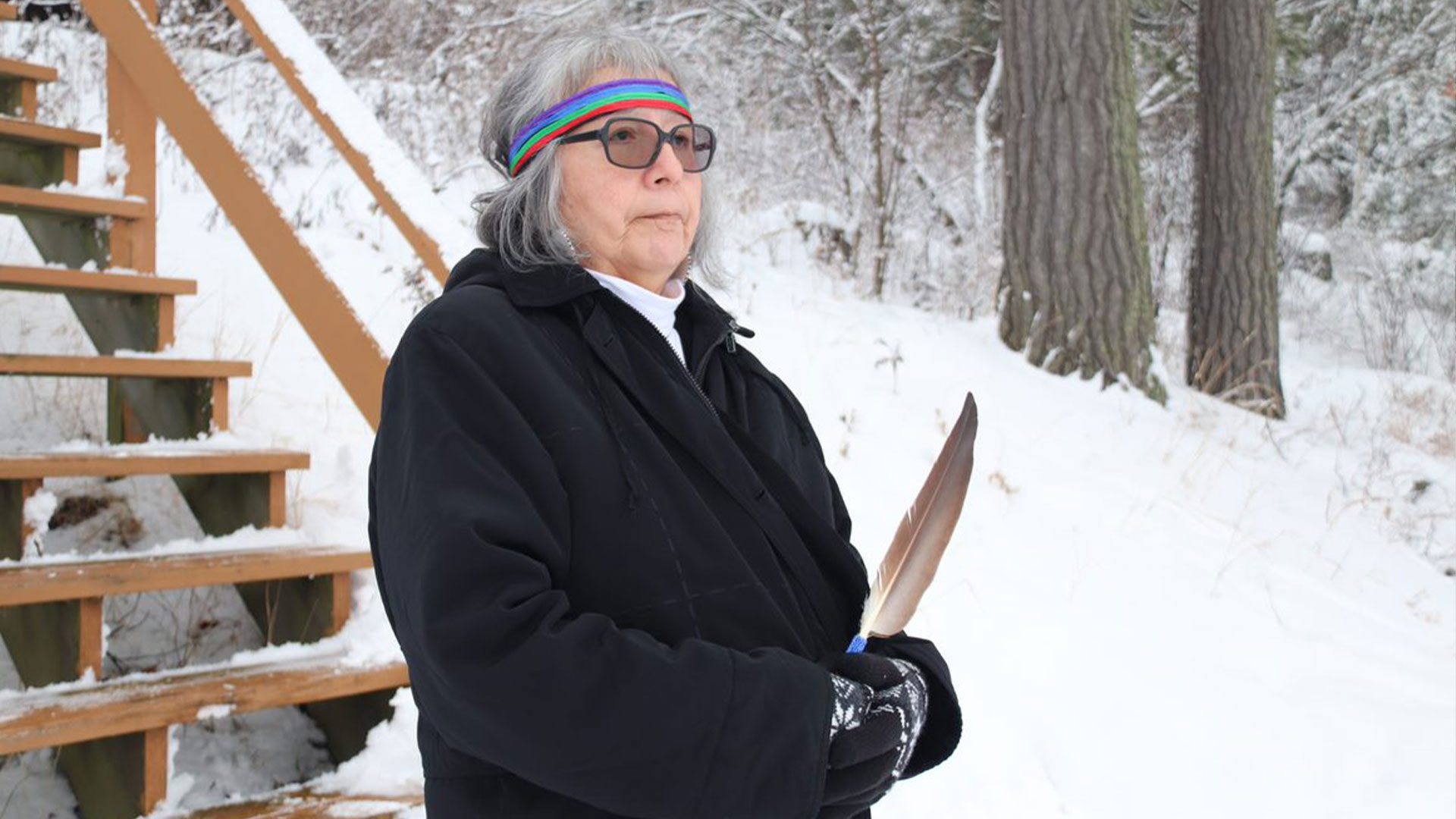
Fisher said the community also shamed her.
With no one to turn to, her life spun out of control.
She began drinking and running away.
Instead of seeing a kid with a broken spirit, everyone saw a problem child, as detailed in her childhood hospital records.
“I just couldn’t beat this feeling, this repulsed feeling in my body and no matter how many times I washed, I couldn’t wash that off. I thought this was all my fault. The low self-esteem kicked in and the suicidal depression because I wanted to die. I wanted to die,” she told APTN, sobbing.
Fisher identified her abuser in the documentary, Buried Truths.
This isn’t a thing of the past, either.
Cheynna Gardner tried to address abuse in 2021.
Gardner, and a few friends, lit a sacred fire to call out sexual violence in her home community of Eagle Lake First Nation, approximately 130 kilometres east of Kenora, Ont.
“Most people that I know, like my friends that are my age, a lot of them have gone down a path of addiction. Every single one of them was sexually abused by family or relatives,” said Gardner.
Instead of receiving support from the community, Gardner said the group was harassed on social media by fellow community members who wanted the fire to go out and the truth kept quiet.
APTN saw this first hand at the time, as one community member wrote APTN disparaging the group only to admit they were also a victim of sexually abuse.
“Victims are further victimized in our communities when they talk about their abuse, when they want justice. We’re the ones that are looked at as being hateful and in the wrong,” said Gardner.
She said everyone in the community knows who the abusers are.
“I was also sexually abused growing up by people in my community and they still walk around free when they’ve done it to not just me, but a lot of other people too,” she said. “When you do that to somebody, it really, really destroys their spirit. It’s like you take something from them,” said Gardner.
In a different community, a father abused his own daughter so violently that the details of it can’t be reported.
He would do it so often, and in broad daylight, that the community could no longer ignore it and he ended up going to prison. Today, years later, he’s seen as an elder by some in the community.
APTN has interviewed several people who claim this man raped multiple people, including one woman who said he raped her at four years old. She has kept it to herself all these years.
It’s not her abuser she still fears, but how the community will treat her.
In Nigigoonsiminikaanmng First Nation, about 40 km east of Fort Frances, Charles Windego is currently charged with sexually abusing two women. The charges against him include human trafficking.
He was working as the Ontario Works coordinator for the community at the time of his arrest in early 2021.
Last June, the chief of the community said he was unaware of Windego’s charges more than a year after they were laid by police. That chief was Windego’s younger brother, as his family is often on the band council.
One of his alleged victims said she’s been harassed twice in the last six months by people from Nigigoonsiminikaaning for going to police.
“They called me a liar and were threatening me,” she said. “The second time [they] almost hit me with a vehicle.”
The first time was at a bass fishing tournament.
“[They’re] mad that I won’t take it back,” said the woman, who was sexually abused and trafficked as a child growing up in Treaty 3.
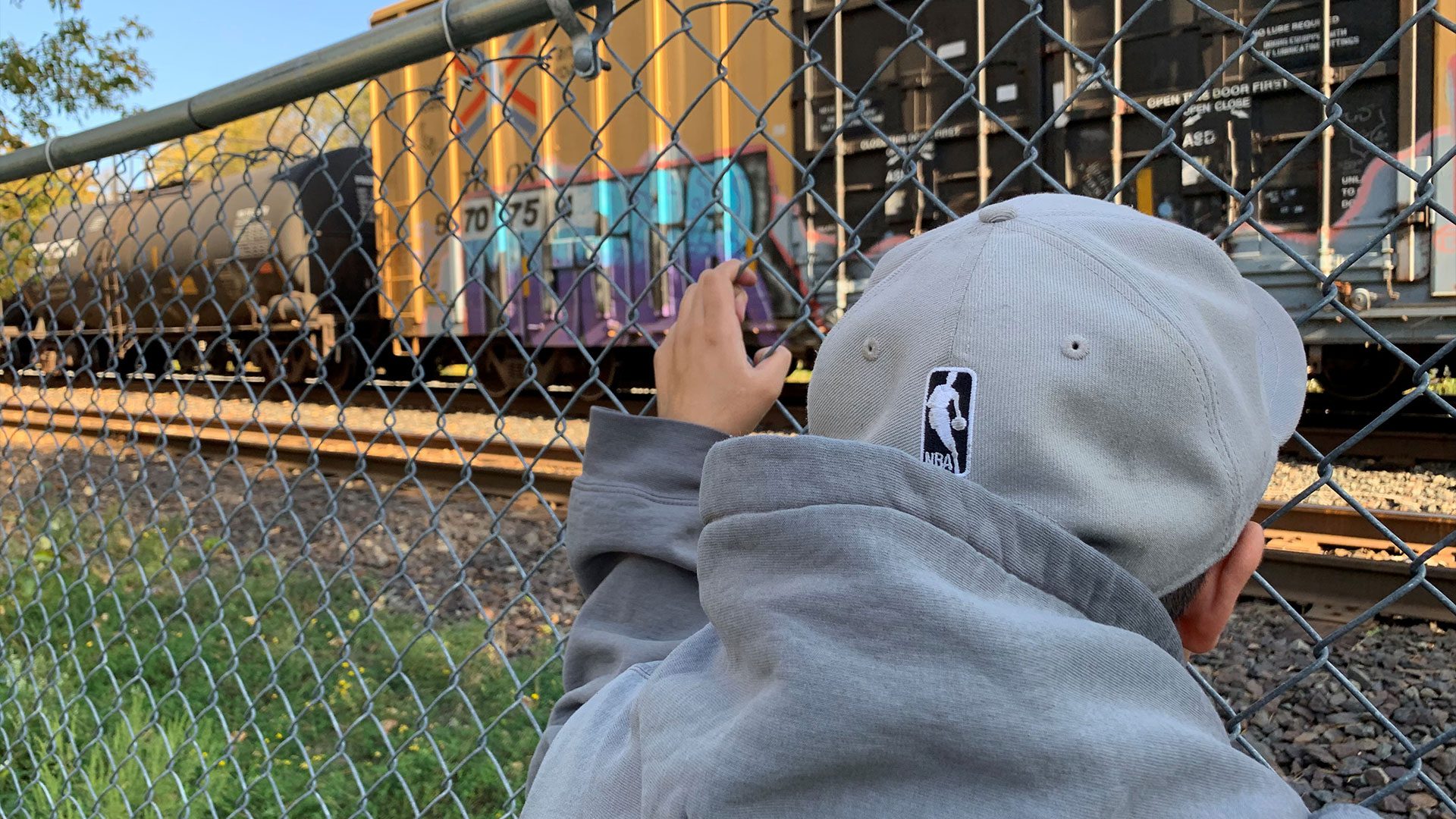
Windego’s trial keeps getting delayed and, as APTN reported last October, it’s not the first time he’s faced violent sex charges.
He was accused of gang-raping a 26-year-old woman with four other men in 1977 when he was a band official with Nigigoonsiminikaaning.
One of the co-accused was Gilbert Smith, who is considered by some in Treaty 3 today as an elder and traditional healer.
At the time of the assault, Smith was chief of Naicatchewenin First Nation.
Smith and Windego, who are related, were charged, along with the three other men, with rape and abduction.
All five men ended up pleading guilty to the lesser offence of indecent assault, according to a Fort Frances Times newspaper article in 1978, which APTN retrieved from the local archives.
The article quoted a pre-sentence report that stated there was “increased anxiety in the native community over alcohol and abuse and sexual assaults. Young women fail to enjoy freedom on the reserve.”
The report was written by probation officer David Bruyere, a First Nations man and member of Couchiching First Nation next to Fort Frances.
Bruyere wrote that there was a “silent threat” of spiritual and physical intimidation in the community.
During a hearing to determine their jail sentence, the guilty men called upon Rudy Morrisseau to dispute Bruyere’s report.
Morrisseau was the newly-elected chief of Couchiching and the former band manager and welfare administrator at Naicatchewenin where the assault occurred.
He “vehemently denied” there were regular sexual assaults in the community.
“I don’t know where they got their information,” Morrisseau testified. “We’re responsible people. We wouldn’t tolerate those kinds of things.”
Only he was lying.
Morrisseau was a rapist.
He had raped teenage boys in the 1960s and 1970s when he worked as a counsellor at the Agassiz Youth Centre in Portage la Prairie. The other rapes happened in Sandy Bay First Nation and Couchiching.
Morrisseau wouldn’t be convicted of his crimes until 2002 and died 18 years later.
According to his obituary, Morrisseau played a role in the development of Weechi-it-te-win Family Services, also known as Weechi, a First Nation child welfare agency operating out of the old Fort Frances residential school.
Smith would also go on to work at Weechi where he was accused again of sexual assault by a teenaged girl at a Weechi group home. He denied the allegations and police investigated, but didn’t lay charges, as previously reported by APTN.
Read More:
The dark history of Weechi-it-te-win Family Services
APTN found that Weechi is often at the centre of abuse of children. We’ve identified more than 20 former foster kids who say they were sexually abused while in care of the agency.
From workers sexually abusing children to caregivers being charged for doing it, the history of the agency is steeped in stories of abuse going back at least 30 years.
And if there was any purported screening, you wouldn’t know it, as APTN confirmed several incidents where there were no background checks done on homes that children were placed in or on agency workers.
That included Windego.
After he was convicted of the indecent assault he also went on to work at Weechi in the late 1980s and early 90s.
APTN caught up to Windego when he was going into the courthouse last June in Fort Frances. He refused to comment on the charges against him.
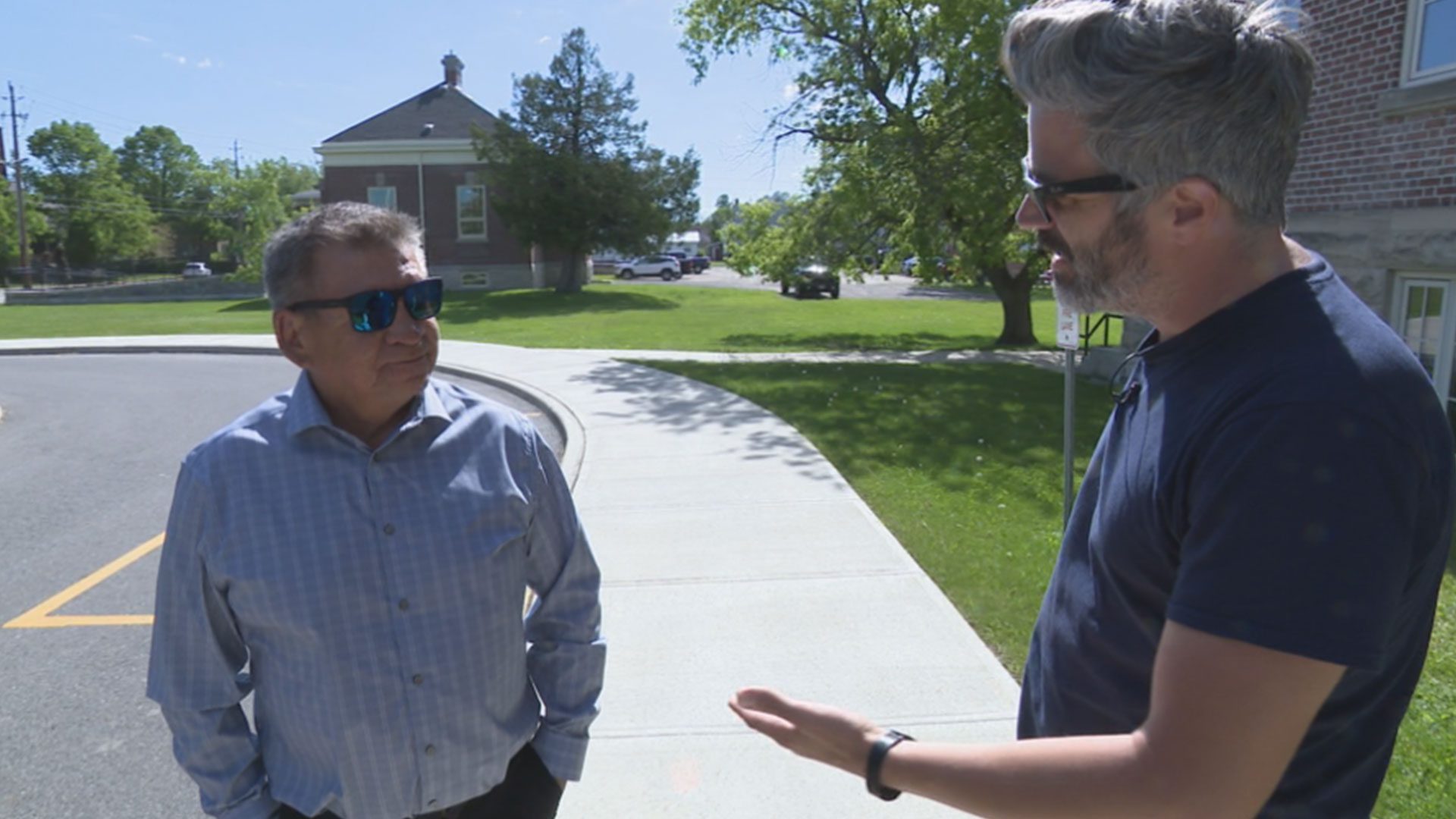
Then there’s Harry Kelly, a former long-time worker at Weechi and band councillor in Onigaming.
Kelly was accused of raping a 15-year-old child in care of Weechi in 2010, who scored very low on a psychological assessment, according to court records.
He initially denied the rape, but later said the girl seduced him when confronted with indisputable evidence by police that APTN isn’t reporting to protect Kelly’s victim.
Kelly pleaded guilty to sexual interference and was sentenced to four years in prison. As a registered sex offender, Kelly isn’t allowed to work or volunteer in a position of authority with children under the age 16.
He was recently named in a lawsuit by another former child in care who alleged Kelly molested him while employed by Weechi in the 1990s. Kelly denied the allegations to APTN.
Kelly’s brother, Lawrence, was also working for Weechi at the time, is accused of shipping the child to a facility in the United States the day after he reported the alleged assault, according to the same lawsuit, which has not yet been heard in court.
Weechi also denied the allegations in court documents.
There are currently eight adults suing Weechi for claiming they were sexually abused in care between 1980 and 2010
Read More:
New sex abuse allegations emerge against Weechi-it-te-win Family Services
There used to be 10 First Nation communities under Weechi, but Onigaming left at the end of October and moved over to Anishinaabe Abinoojii Family Services, the other First Nation child protection agency in Treaty 3.
“I’m just glad we’re out,” said Jeffery Copenace.
“We lost two [staff] positions in the transfer, but we are doing very well with Abinoojii. Our team is a lot happier, the cultural approach is way stronger with them and we finally have a relationship with our agency.”
Allegations of sex abuse involving Weechi continue to this day.
A caregiver in Couchiching was charged last August with nine sex crimes, including sexual interference, against a child that had been in his care for years.
None of these cases involving Weechi are readily available to the public unless they know where to look and even then it can be extremely difficult to find the information.
APTN’s reporting appears to be the first time anyone has taken a serious look at the abuse in Treaty 3. The information was found through interviews, court documents and searching newspaper archives for evidence to confirm the oral history spoken within the communities.
In speaking to dozens of local people in the affected communities, even more stories of abuse surfaced. But those complaints were not reported or documented.
Since APTN’s reporting began more and more people have opened up about abuse.
That includes Craig Lavand, who said he was abused as a young boy in Wauzhushk Onigum First Nation next to Kenora, Ont.
“I went to the first therapist in years and finally was able to disclose some things. Here’s to making those ripple effects,” said Lavand, who shares his full story in Buried Truths on Friday.
Lavand said he intends to file a complaint with police.
“They need to be held accountable just like we’re holding the government and the churches accountable, because we’re expecting truth and reconciliation from outside communities and we can’t even truthfully reconcile in our own communities with ourselves, in our own circles,” said Lavand.
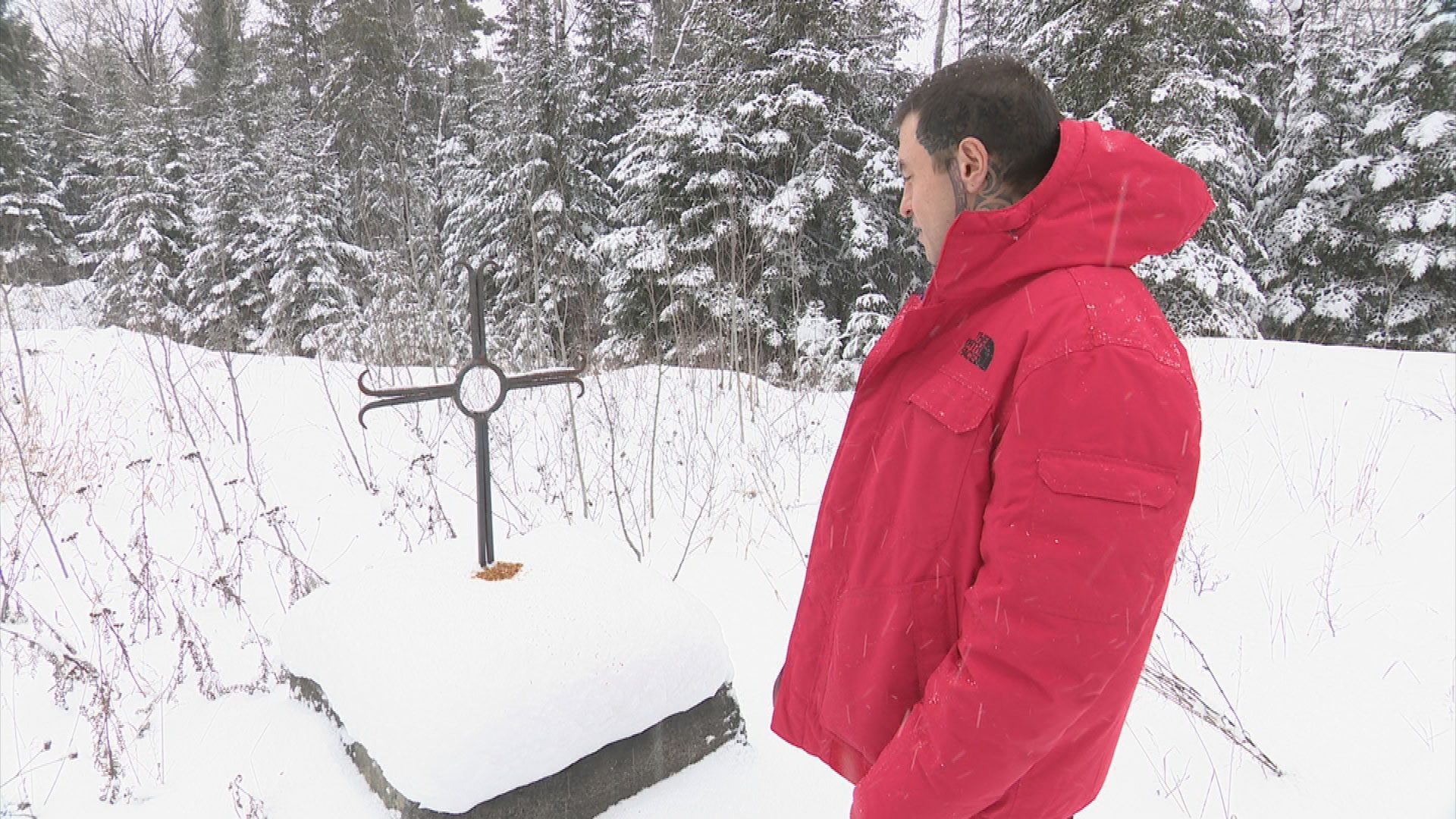
Because of childhood trauma, Lavand has spent time in the local Kenora jail.
“When you go into institutions like the jails and talk to guys who are First Nations, nine out of 10 have experienced sexual assault in their lifetime,” he said.
Some people in Kenora, Ont. are growing tired of unsheltered Indigenous people living on streets and, most recently, there’s been increase of violence downtown.
City officials called an emergency townhall meeting during the Christmas break.
But few people see what’s really happening or chose to ignore what’s right in front of them, said Copenace.
“The cause of it is everything we’re talking about, right? They just found 171 [possible] bodies, just a couple of kilometers [from downtown] and that sexual abuse started then and it’s still rampant. It’s still ongoing,” said Copenace, referring to the recent discovery of unmarked graves at the St. Mary’s Residential School in Kenora.
“It’s both and if we’re not going to take both seriously then these attacks on Kenora businesses are going to keep happening and these attacks in our community are going to keep happening. People are still going to keep hushing it up.”
Resources to address the issue fall short of any meaningful or lasting change.
And if people won’t admit it’s happening, it’s only going to get worse much like it is in Fort Frances where APTN visited last summer where we watched the wide swath of trauma play out on a hot summer day.
Some people were living in tents behind a drop-in centre at the old CN Rail station called The Family Centre.
Most had been through the child welfare system, and a lot of them, if not all, had been victims of sexual abuse, said Traci Lockman, who volunteers at the centre.
“And as a result of that, a lot of them have addiction issues. They can’t go back to their communities due to breakdown in family units, due to drug use or there’s no housing. There is no housing available in these small communities. You often can have two generations of families living in one house,” said Lockman.
Sexual violence in the communities can also push the people to the city streets where they become targets for drug pushers and sex predators.
“We’re starting to hear about individuals in the area, that whole trafficking aspect. It’s like it’s evolving and a lot of these girls are vulnerable, they’re dependent on drugs and they’ll do whatever it takes to get them,” Lockman said.
In fact, as APTN was arriving at the centre on June 20, Lockman was chasing a local man away.
“I don’t know whether he was looking for sex or drugs. He’s here often. We’ve kicked him off the property. We’ve called the police,” she said.
The Ontario Provincial Police later confirmed it had an active investigation into the man after APTN obtained evidence of the man offering drugs in exchange for sex.
A couple hours later Lockman found a young woman unresponsive and facedown in her tent.
“Call 911, someone!” she yelled out.
It was frantic and no one knew if the woman would make it.
Lockman administered a shot of naloxone.
“Is she okay?” a woman asked.
“No, actually, she’s not responding,” Lockman replied.
“Is she breathing? Got a pulse? Yeah, check her pulse.”
A second shot brought the woman back.
Her legs wobbled as they slowly walked her inside the building minutes later.
“She’s been through a lot. Her mother died of an overdose two days ago,” Lockman explained, adding the woman grew up care of Weechi, just like her brothers and sisters who are all unsheltered.
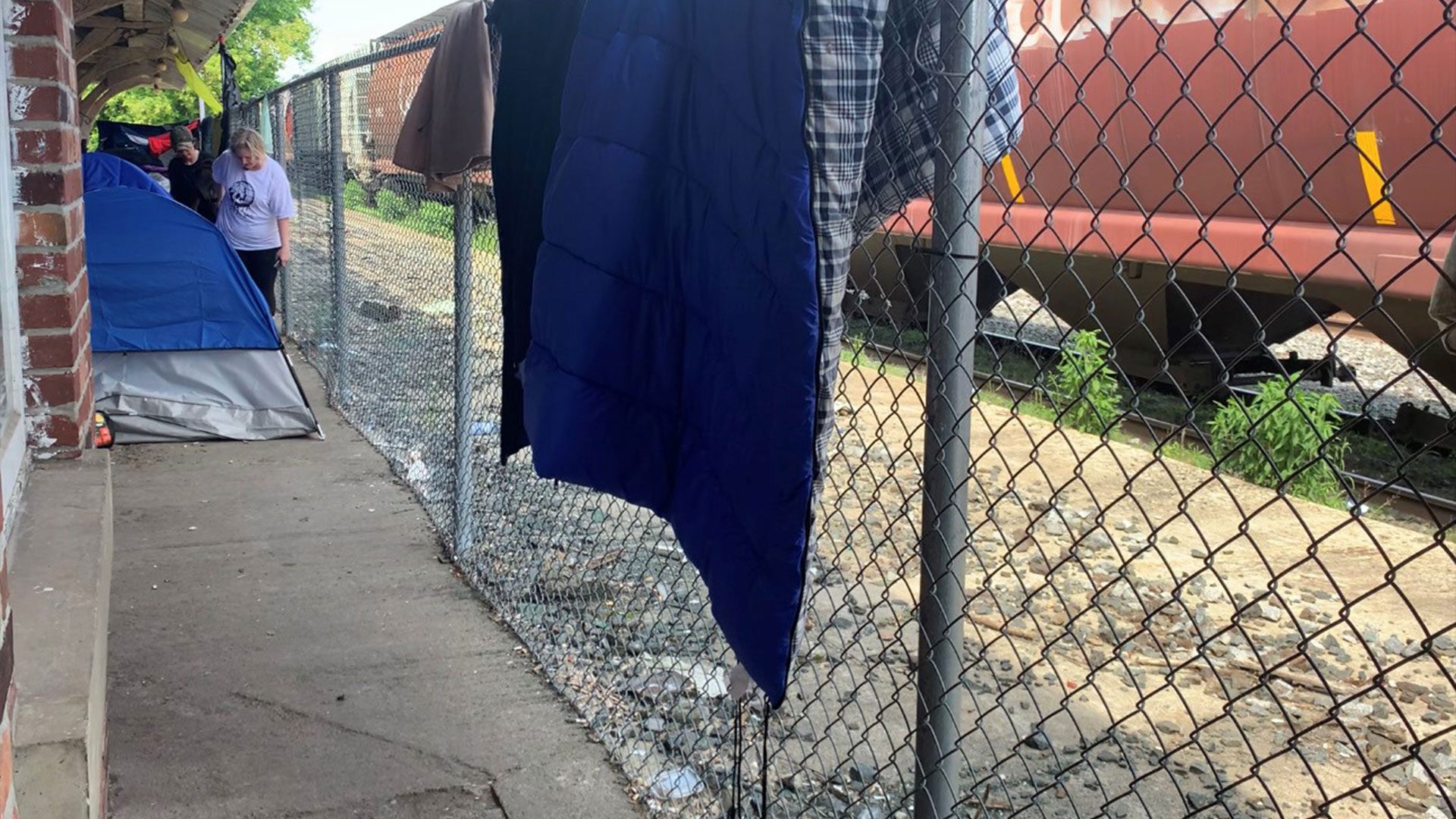
Over the last few months, APTN has reached out to various leaders across Treaty 3 for comment on sexual abuse.
None of them responded.
Valerie Fisher thinks she knows why.
“I think it’s because you’ve hit a sore spot with some of the leadership, especially if they’re men, because they know … and they don’t want to have to deal with it,” said Fisher.
Many people who spoke to APTN believe part of the reason why the abuse has been kept quiet so long is because too many chiefs have been abusers themselves.
That includes Eli Mandamin of Iskatewizaagegan 39 First Nation, who was convicted in 2019 of a historic sex crime against a 14-year-old girl in the 1980s when he was a special constable with the Ontario Provincial Police.
The victim told police that she had been raped.
Mandamin went on to become chief of his community in the late 80s and later served one term as the grand chief of the Grand Council of Treaty 3 in the 1990s. He was elected again as chief of Iskatewizaagegan, serving from 2006 to 2012.
“My biggest issue is some of these men are just portraying something that they’re not and, to me, that is like the purest abuse of power that you could possibly witness,” said Copenace.
APTN continues to investigate sexual abuse and reporter Kenneth Jackson can be reached by calling or texting his cellphone at 613-325-6073.
Editor’s note: There are five additional First Nation communities in Treaty 3, including Buffalo Point and Sagkeeng First Nations in Manitoba which are policed by the RCMP.
Sagkeeng is also part of Treaty 1 and reported 95 sexual assaults between 2017 and 2021, including 27 reports of sexual interference, meaning the victim was under the age of 16. Based on Sagkeeng’s registered population with the federal government of 3,662 and 14 reported sexual assaults in 2021, it had a sexual assault crime of 382/100,000.
Buffalo Point is a much smaller community of 54 people and the RCMP reported four sexual assaults in 2021.
The Ontario Provincial Police patrol the Ojibways of Saugeen Nation, which said there’s been four reports of sexual assault in the last five years. It’s on-reserve population was 82 as of Dec.
Numbers for the remaining two nations weren’t available. That includes Lac Seul First Nation, which has it’s own police force, with a population of 936.
The last nation under Treaty 3 is Lac des Mille Lac First Nation, which had seven people on-reserve last year.
With the additional data, the police-reported sexual assault crime rate across Treaty 3 in 2021 was 10 times higher than the national average.










